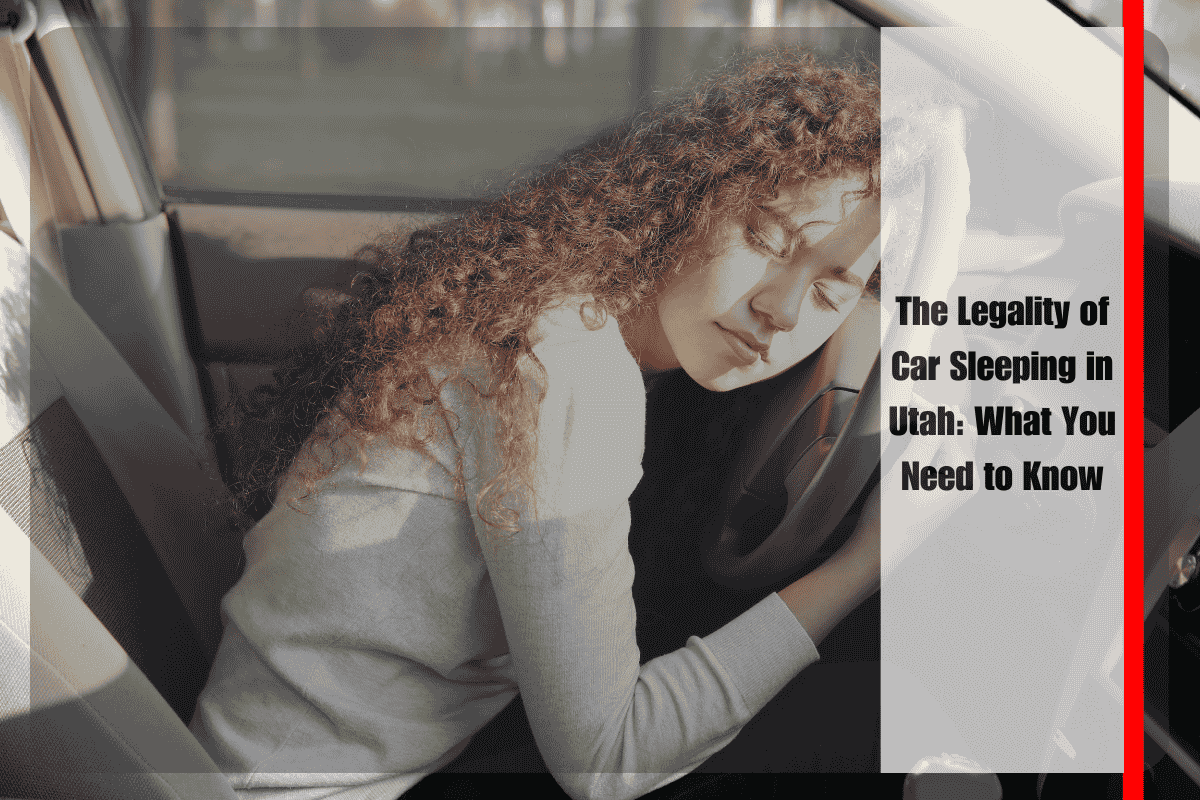In Utah, sleeping in your car is a situation governed largely by local ordinances and varies significantly depending on the location. Generally, the state does not have a unified law that outright bans sleeping in a vehicle, but city-level regulations often restrict this practice, especially on public streets. Many Utah cities have ordinances that prohibit parking a vehicle overnight on public streets or for extended periods, which implicitly includes sleeping in the vehicle. Violating such parking restrictions can lead to fines, citations, or towing, which effectively makes sleeping in your car in these areas illegal.
Some cities are more restrictive than others. For example, St. George, Utah, has enacted a specific ordinance making it illegal to sleep in any vehicle on public property. Such measures are part of a broader trend where local governments address concerns associated with vehicle dwelling, such as safety issues, public image, and business district aesthetics. This is often aimed more at discouraging long-term vehicle habitation rather than short-term rest or naps.
However, there are exceptions and places where sleeping in your car is generally allowed in Utah. Interstate rest areas and truck stops typically permit drivers to sleep or rest in their vehicles, usually with posted time limits. Public lands managed by entities like the Bureau of Land Management (BLM) and many campgrounds also allow car or van camping, though each site has regulations about duration and setup. Additionally, some large retail store parking lots such as Walmart’s may allow overnight parking, but this often depends on store policy and local ordinances, making it necessary to check with management before settling in.
To ensure safety and avoid legal issues while sleeping in a car, it is advised to park legally in designated areas, keep the vehicle off, lock all doors and windows, and maintain a low profile. Using window coverings or curtains to enhance privacy is encouraged. Isolated locations are discouraged due to safety concerns.
Utah law recognizes a vehicle as a structure adapted for overnight accommodation in some legal contexts, which can affect how certain laws are applied to vehicles used for sleeping. Despite some negative perceptions toward vehicle dwelling, especially in urban areas, many travelers and truck drivers rely on resting in their vehicles as part of their lifestyle.
Overall, while you can sleep in your car legally in various places in Utah, especially at rest stops, campgrounds, and public lands, the practice is restricted or outright banned in many urban and residential areas due to local ordinances. It is important to research local parking rules, city ordinances, and business policies to avoid penalties. The patchwork of laws requires travelers and residents alike to remain informed and respectful of local rules surrounding car sleeping. Being aware of specific city regulations and adhering to posted signs about parking or overnight stays can help avoid unwanted encounters with law enforcement.
Sleeping in your car in Utah is legal in various designated areas like rest stops, truck stops, and campgrounds but often restricted or illegal on city streets or public property in many municipalities. Following these guidelines will ensure a safer and legally compliant experience when sleeping in a vehicle in the state.
Sources
[1] https://codelibrary.amlegal.com/codes/loganut/latest/logan_ut/0-0-0-5714
[2] https://le.utah.gov/xcode/Title41/Chapter6a/C41-6a-P14_1800010118000101.pdf
[3] https://www.slc.gov/mystreet/parking/
[4] https://farmington.utah.gov/parking-regulation-and-enforcement/
[5] https://midvale.municipal.codes/Code/10.16.150












